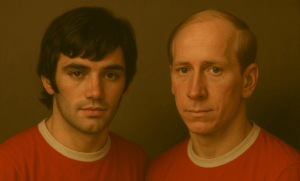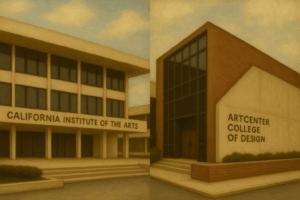
The GOAT of the English Midfielders from the 90s-00s?
Wherever football fans gather, there’s a question that has been ceaselessly asked for the past two decades: Who was the best midfielder among Frank Lampard, Steven Gerrard, and Paul Scholes? This question is more than just a player comparison; it’s a debate that cuts through the football philosophy of a generation and a lingering homework assignment symbolizing the glory and frustration of England’s ‘Golden Generation.’
In 2025, we can finally add a new perspective to this age-old debate. With their playing careers complete, their football intelligence and philosophies have been proven in other ways through their second careers as managers and pundits. This article, from a 2025 viewpoint, aims to provide the most complete and in-depth answer to this heated debate by comprehensively analyzing not only their records and performances as players but also their second careers.
1. Legends in Numbers: A Comparative Analysis of Career Statistics
Before a full analysis, looking at the careers of these three players through objective numbers is an important starting point for the discussion.
Premier League Career Statistics
| Metric | Frank Lampard | Steven Gerrard | Paul Scholes |
|---|---|---|---|
| Appearances | 609 | 504 | 499 |
| Goals | 177 | 120 | 107 |
| Assists | 102 | 92 | 55 |
| Pass Completion % | 82.74% | 81.75% | 90.72% |
| Duels Won | 881 | 1,271 | 564 |
Total Club Career Statistics (All Competitions)
| Metric | Frank Lampard | Steven Gerrard | Paul Scholes |
|---|---|---|---|
| Total Appearances | 905 | 749 | 716 |
| Total Goals | 272 | 191 | 155 |
| Total Assists | 173 | 170 | 82 |
Major Trophies and Individual Awards
| Category | Frank Lampard | Steven Gerrard | Paul Scholes |
|---|---|---|---|
| Premier League | 3 | 0 | 11 |
| Champions League | 1 | 1 | 2 |
| Total Trophies | 11 | 7 | 19 |
| Ballon d’Or (Best Finish) | 2nd (2005) | 3rd (2005) | Nominee |
| UEFA Club Footballer of the Year | 0 | 1 (2005) | 0 |
| FIFA/FIFPro World XI | 1 time | 3 times | 0 times |
This data reveals the core of the debate. Scholes presents the image of a ‘winner’ with an overwhelming trophy cabinet, while Lampard and Gerrard boast the individual glory of standing on the Ballon d’Or podium, certifying them as the best players of their time.
2. Frank Lampard: The ‘Strategist’ with Intelligence and Goals
Analysis as a Player: The Textbook Box-to-Box Midfielder
Frank Lampard’s playing career can be summarized in one word: ‘intelligence.’ His greatest weapon was not his shooting ability, but his intelligent off-the-ball movement and spatial awareness. He had an innate sense for spotting scoring opportunities and would ghost into the penalty box to score decisive goals. His records as the Premier League’s all-time leading scorer for a midfielder (177 goals) and scoring double-digit league goals for 10 consecutive seasons prove that he was the most efficient ‘goal-scoring midfielder’ in history.
Journey as a Manager: Proving Himself Through Trials
The intelligence from his playing days became an asset for Manager Lampard. After enduring trials at Chelsea and Everton, he took the helm at Championship side Coventry City in November 2024 and, against all odds, led the team to the promotion playoffs. This was a result that clearly demonstrated his tactical growth and proved that the intelligence of a player could evolve into the tactical wisdom of a manager.
3. Steven Gerrard: The ‘Talisman’ Who Had Everything
Analysis as a Player: The Symbol of Liverpool, Heroic Leadership
Steven Gerrard was perfection itself. He was the team’s engine, a midfielder who could do everything on both offense and defense. His career is often described as a ‘one-man army,’ as he countless times performed heroic feats to save his team from crisis.
- The 2005 Champions League final in Istanbul, considered the greatest comeback in football history, and the 2006 FA Cup final are games that are synonymous with Gerrard as a player. He was not just an outstanding player; he was the team’s spiritual anchor and the incarnation of victory.
Journey as a Manager: Conqueror of Scotland, Frustration in Saudi Arabia
Manager Steven Gerrard’s career has been one of extremes. He heralded a bright future by achieving an undefeated league title with Rangers in Scotland, but subsequently, at Aston Villa and Al-Ettifaq in Saudi Arabia, he tasted the bitterness of dismissal and resignation without clear results. This has led to analysis suggesting that his heroic abilities as a player may be acting as a limitation in the world of management.
4. Paul Scholes: The ‘Quiet Maestro’ Who Transcended Eras
Analysis as a Player: From Attacking Midfielder to Deep-Lying Playmaker
Paul Scholes’s career is a history of ‘evolution.’ An attacking midfielder with excellent goal-scoring ability in his early career, he reinvented himself in his later years as one of the world’s best ‘deep-lying playmakers,’ or ‘regista.’ He orchestrated the entire game from just in front of the defensive line, controlling the tempo with a phenomenal pass completion rate of over 90%.
The True Genius Acknowledged by His Peers
Scholes’s true value is revealed in the praise from the great players of his generation.
- Zinedine Zidane: “My toughest opponent? Scholes of Manchester. He is the complete midfielder.”
- Xavi Hernández: “In the last 15 to 20 years, the best central midfielder that I have seen—the most complete—is Scholes.”
- Thierry Henry: “Every time we played Man Utd, we had to find a way to stop him. He was the one who was making Man Utd tick.”
Influence Off the Pitch: The Sharp and Direct Pundit
After transforming into a pundit post-retirement, Scholes has wielded great influence with his sharp and direct analysis. He pours out relentless criticism even towards his former club, Manchester United, and is respected for his pure analysis based on the essence of football, not media-friendly soundbites.
5. The Three Lions’ Dilemma: Why Didn’t They Shine Together?
Why did England’s ‘Golden Generation,’ which possessed three midfielders whose names alone are awe-inspiring, fail to win a major tournament?
Sven-Göran Eriksson, former England manager: “I couldn’t put the four best midfielders in England (including Beckham) on the bench.”
Ultimately, England’s failure was not one of talent, but of tactical identity. All three players had strong attacking tendencies, leaving a lack of defensive balance in the midfield, and England could not break free from the confines of a traditional 4-4-2 formation. It was a case that proved the old football adage: gathering the ‘best players’ does not necessarily make the ‘best team.’
Final Verdict: Lampard, Gerrard, Scholes from a 2025 Perspective
The question ‘Who was the best?’ may have been flawed from the start. The correct question is this: “For what purpose would you choose them?”
- Frank Lampard: The ‘Strategist’
If your team needs a reliable goal source from midfield and the highest tactical intelligence, the choice is Lampard. He was the ultimate system player who perfectly executed his role with intelligence and hard work. - Steven Gerrard: The ‘Talisman’
If your team needs a hero to single-handedly turn a game, a leader to ignite fighting spirit, a force of nature, the choice is Gerrard. He was a player born for the decisive moment. - Paul Scholes: The ‘Maestro’
If you want to build a dynasty based on total control of the game, technical perfection, and tempo-setting, the choice is Scholes. He is the player other geniuses rate highest and embodies the essence of football itself.
In the end, this debate was not a battle to crown a single winner. It was a philosophical question of what one values more: Lampard’s intelligent efficiency, Gerrard’s heroic inspiration, or Scholes’s quiet genius. The real tragedy was not in comparing them, but in the failure to fully recognize each of their unique geniuses while they played together.




